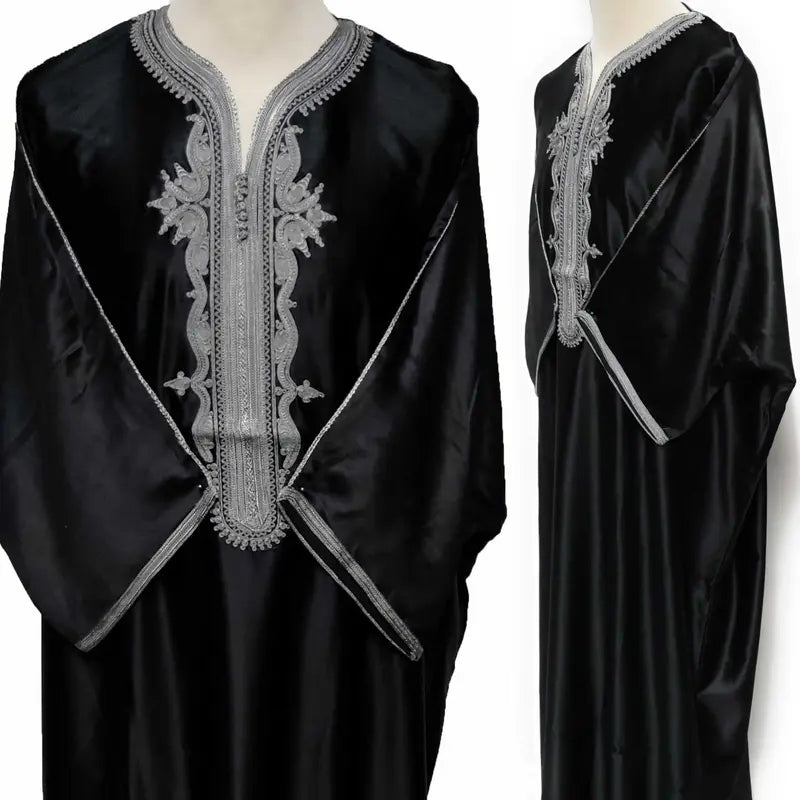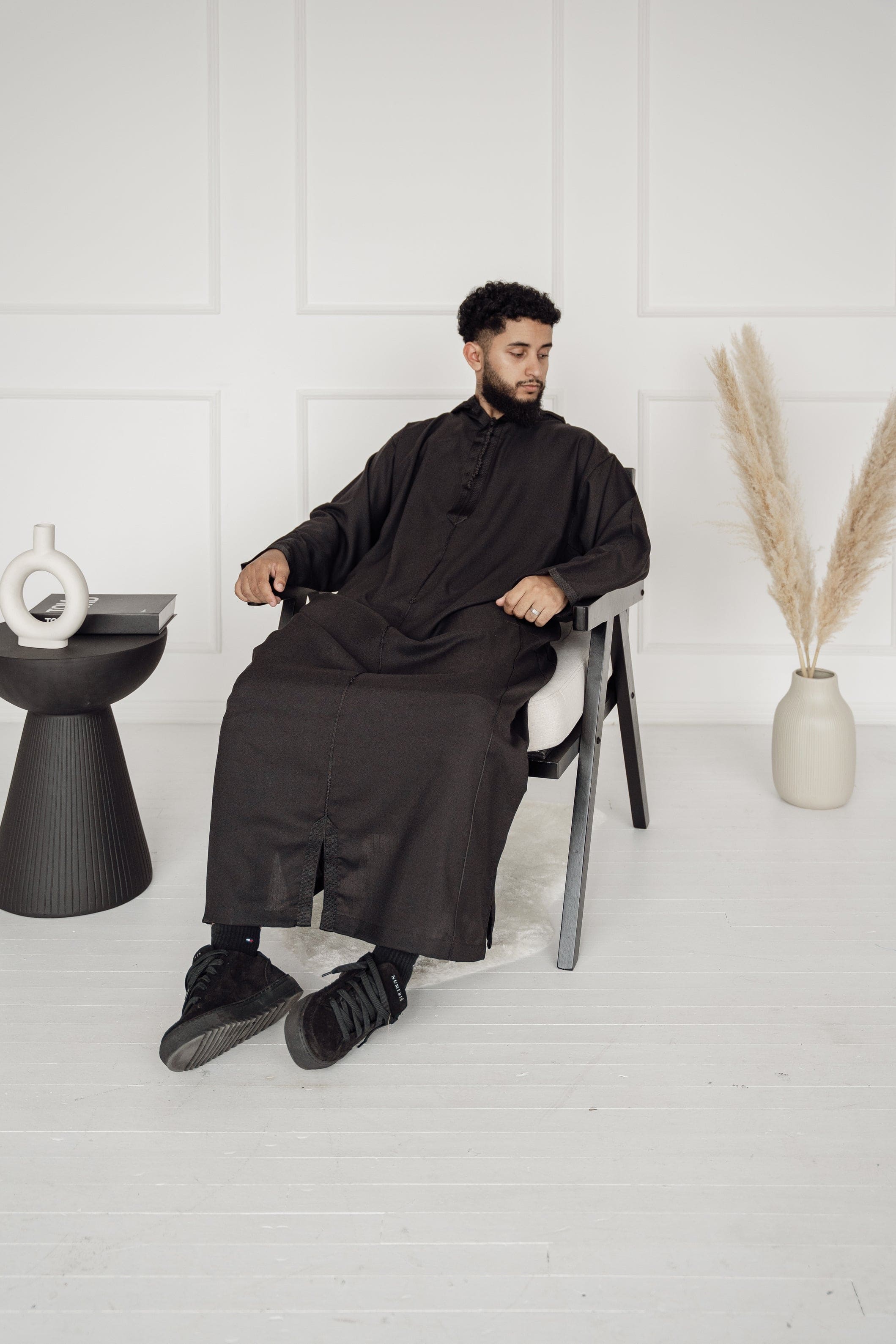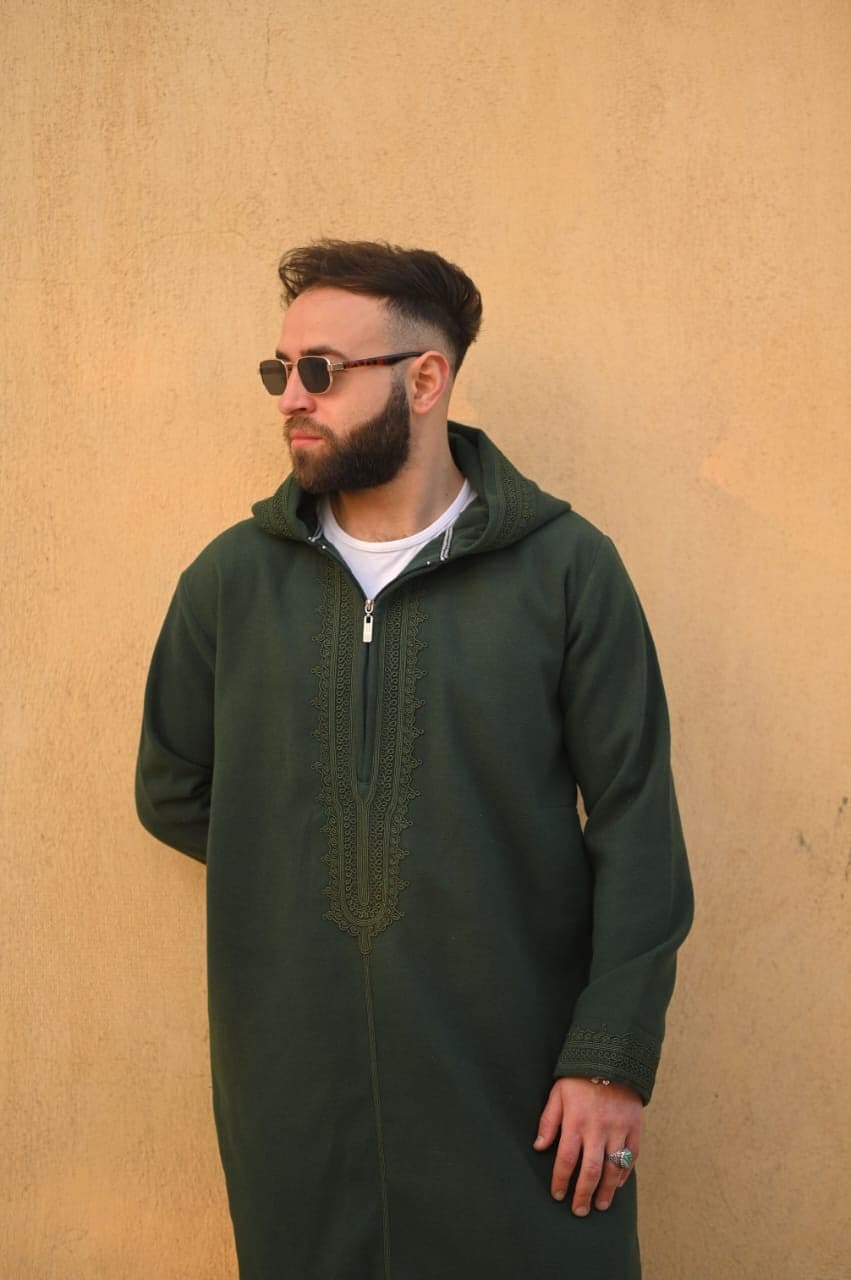For newbies, the beauty of Islamic teachings may sound intricate initially, but once you step into this world, everything is aligned perfectly. Similar is the mindset about how a man and a woman should dress, representing utmost modesty in all aspects. As tobes are gaining immense popularity worldwide, it raises various concerns with time, such as ‘Are black thobes haraam?’.
The Muslim community follows the concepts of permissibility and prohibition – halal and haram (or non-halal), respectively. From primary human needs to the complexities of this worldly life, the notions of what’s permissible and what’s not are always a significant concern that paves the path to their lives.
As clothing is an everyday basic necessity for humans, Muslim costumes accurately represent elegant modesty and gracefulness. Such areas of interest stem from the convergence of religious people, historical context, and individualised interpretations, which generate thoughts about are black thobes haraam or not.
The Color Scope of Self-EffacementThe first image of the answer to your question, ‘Are black thobes haraam?’ is that Islam doesn’t prohibit its followers from wearing a particular shade or colour. Nonetheless, the matters of preference are another debatable concern.
There are no such obligations from the teachings of the Quran and Prophet Mohammad ﷺ that Muslim men shouldn’t wear black-coloured thobes. Many of our prophets used to wear this colour. Besides, the most common colour of abaya for women is also black.
It is crucial to consider the differences between religion and culture. If you’re a keen follower of faith, it is mandatory to stay on its path no matter how unusual it seems from the cultural perspective. Similarly, if a custom is inappropriate to follow, it is recommended to abstain from it no matter how awkward it feels.
White-coloured modest wear is frequently recommended because this colour represents simplicity and purity, which are some of the most encouraged aspects in Islam. The influence of culture, historical perspectives, and climatic conditions on costumes are also considered prominent determining features for deciding what to wear while attending school, family or friends’ gatherings, or a wedding occasion.
Are Black Thobes Haraam?In evaluating whether wearing a black thawb is permissible, it is paramount to differentiate between religious prohibitions and cultural norms. Islamic jurisprudence (fiqh) is established based on the Holy Quran and Hadith (teachings of the Prophet Mohammad ﷺ).
These are considered the authentic sources of knowledge that provide justified and detailed guidance on your ethics, faith, and practice. Both general and specific aspects of attire fall into the category of individualised preferences and contextual deciphering.
Religious Interpretations vs. Cultural NuanceThe negotiation over the permissibility of black tobes exhibits an interplay between religious interpretations and cultural connotations, raising the concern about are black thobes haraam or not.
Many other religions and societies link a particular colour to a specific occasion. Some non-Muslim communities associate the black colour with sorrow or mourning over the demise of their dear ones. Some nations wear white colour to celebrate weddings. On the other hand, Hinduism connects white-coloured dresses with mourning for the departed souls. Such perspectives shouldn’t be confused with either religious or cultural rulings.
The Concept of ‘Intention’ in IslamIslamic practices play a significant role concerning the notions of context and intention (niyyah or niyyat). When you’re wearing a dress, it is essential to understand its context, particularly when you’re a non-native to Middle Eastern or North African regions.
If your primary intentions are to stick to self-effacement, Islamic values, and respect an occasion, the colour of your costume becomes a secondary consideration. In addition, the context or event where you’ll wear robes matters the most. Doing so makes you an energetic participant in cultural appreciation, which promotes amicable cross-cultural ties among nations worldwide.
Conclusion
To conclude, in simple words, the answer to, ‘Are black thobes haraam?’ is ‘no’ because it delves into the intricate interlinkages between an individual’s religion, culture, and personal interpretation. There is no direct prohibition on wearing black thawb. However, white-coloured tobes are encouraged by our Prophet Mohammad ﷺ.
New Arabia, UK, deals in all sorts of Middle Eastern and North African costumes, including Moroccan thobes that are usually confused with djellabas. Your colour clothing is merely a thread in the richly modest tapestry and Islamic fashion.



